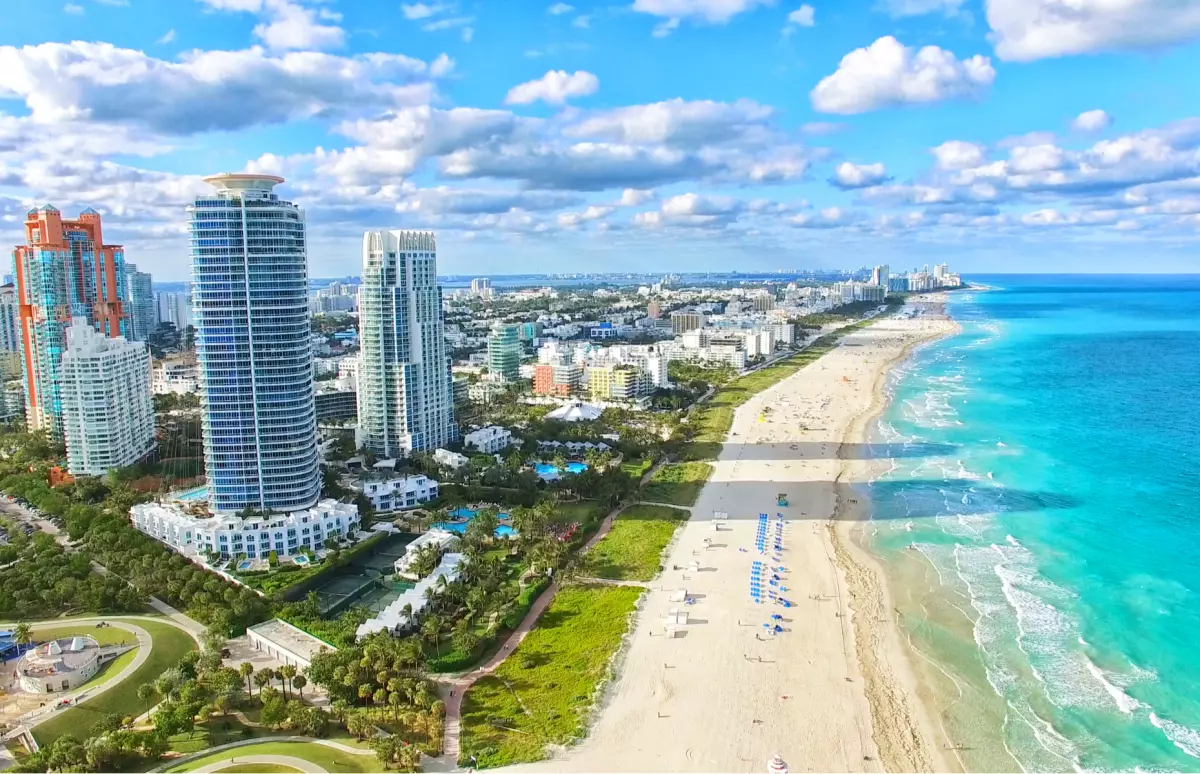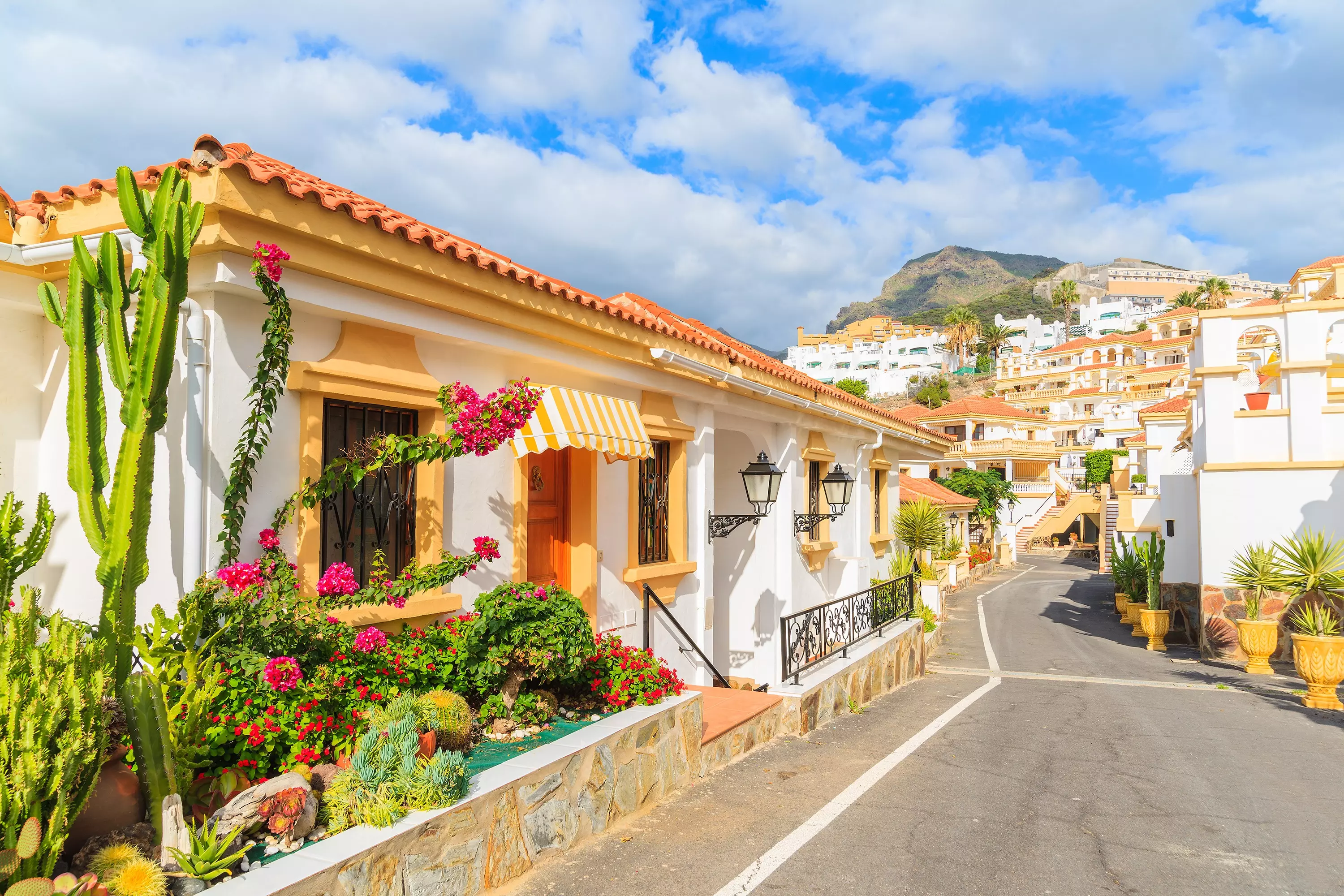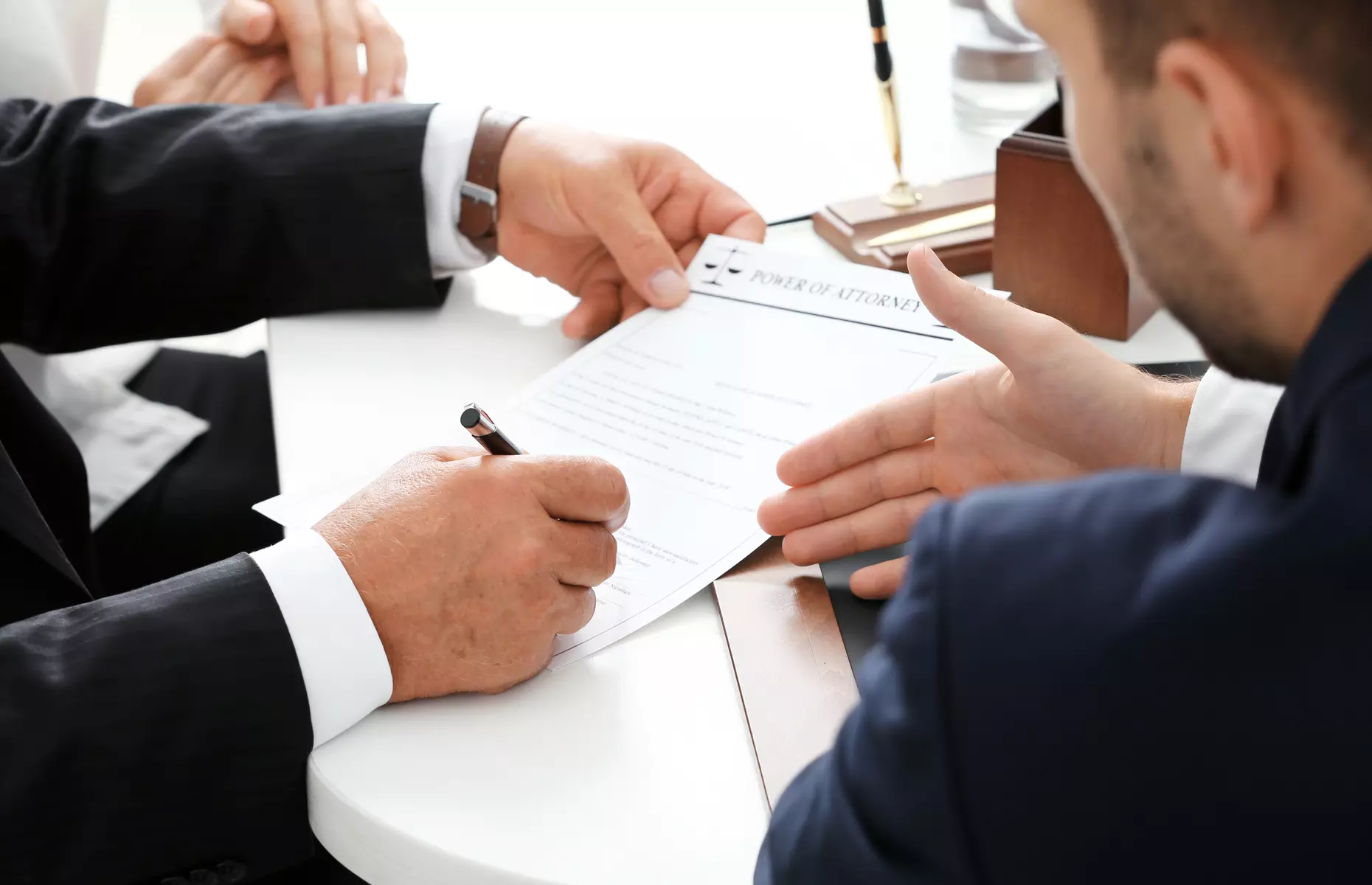If this is the year you plan to make your dream of buying a home in the sun a reality, here’s what you need to know to make sure your overseas purchase goes smoothly.
It’s not hard to understand the draw of owning property abroad - you can go on holiday to a place you know and love at the drop of a hat, rent it out for a healthy extra income or even up sticks to sunnier shores permanently.
But buying in an unfamiliar country outside of the UK means you need to arm yourself with as much knowledge about the process and the potential pitfalls as possible, so you can prevent your holiday home dreams from descending into a nightmare.
Discover the Best Places to Invest in a Holiday Home
The most popular places for UK buyers are Spain, France, and Portugal, according to A Place in the Sun. Other popular destinations include Greece, Italy, Cyprus, Florida, Turkey, Bulgaria, and Barbados.
Many house hunters choose a location based on their experiences of visiting the country or because they have connections there through friends, family, or work. But if you want your property to be a healthy investment too with the prospect of making money in the future when you sell up, it’s worth looking at the housing markets in your potential destinations.
Overseas House Prices
Estate agent Knight Frank regularly publishes research into residential property markets around the world. Its latest Global House Price Index found that although prices rose in 86% of the markets it tracks in 2018, overall price growth is slowing. This is set to continue in 2019 as economic uncertainty, tighter market regulation, and the cost of debt is expected to increase around the world.
Annual house prices in Spain, from the end of 2017 to the end of 2018, rose by 3.9%, while costs increased by 3.3% in France. Prices in Portugal grew by 6.1% - significantly more. The countries in Europe with the biggest increases were Slovenia (15.1%), Malta (11.8%), and Hungary (10.4%), while prices in Italy - another popular location among Brits - fell by 0.8%.
In the USA, house prices rose by 4.7% but, as with any country, growth is likely to differ significantly across regions so check with local estate agents in the specific area you’re thinking of buying in. Last year, holiday insurance company Schofields Insurance found that Florida is the best place to buy for a strong return on investment (ROI).
 Florida offers fruitful rental rewards. Image: Shutterstock/Mia2you
Florida offers fruitful rental rewards. Image: Shutterstock/Mia2you
How you’re planning to use your property should also be a consideration when you’re choosing an area. If you plan to let it to holidaymakers when you’re not there, does it have tourist amenities such as restaurants, shops, and leisure facilities within easy reach? And if you’re planning to retire there, will you be near hospitals and other health services? How easy or costly will it be to maintain the property? It's important to get these big questions nailed down.
Your Rights in the EU and Elsewhere
It's important to check whether non-residents of the country you want to buy in are allowed to own and rent out property there, or if there are any restrictions - last year, New Zealand banned foreign buyers from purchasing homes.
In many EU countries, Brits currently have the same rights as residents to buy and own property, but in Malta, for example, if you’re buying a second home, you need a permit and there’s a minimum price you have to pay.
If you plan to move to your overseas property permanently or spend extended periods there, you need to make sure you have the right to do so. If the destination is in the EEA (European Economic Area - the EU plus Iceland, Norway, and Lichtenstein) or Switzerland, you can freely reside there due to freedom of movement.
However, in the event of a no-deal Brexit, Brits will lose their EU rights straightaway, and your right to reside will depend on what individual countries decide.
In America, if you want to stay for longer than the 90 days permitted by the Visa Waiver Program, you can apply for a B2 Tourist Visa, which can allow you to stay for up to six months but not carry out any paid activities.
The uncertainty around Brexit has affected demand for overseas property, but this could work in your favor if there are fewer buyers competing for it. The market is likely to pick up again if there is a deal, and the value of the pound improves.
READ MORE: The Brexit property survival guide
Conti is an overseas mortgage broker that has been arranging loans abroad since 1994. Its managing director Clare Nessling says: "Enquiries have gone down over the last couple of months, although people are still buying and there is always a passion for France and Spain."
Simon Conn, an overseas mortgage broker with more than 35 years of experience in the overseas property market, has seen a similar impact: "The mid-range section of the market is quiet, although demand at the lower and higher ends is steady."
There is currently no evidence of Brexit affecting the availability of overseas mortgages for Brits.
If you don't have the cash available to buy the property, or you can’t remortgage your UK home to raise the funds, you’ll need to arrange a mortgage with a lender in the country you're looking to buy in. Since the financial crisis, it’s been harder to borrow in other countries, but it’s still possible, with Spain and France being among the easiest.
One advantage of taking out a mortgage is that the lender will do checks on the property to make sure it offers good enough security for the loan, giving you extra protection. And if you rent out the property, you’ll be earning money in the same currency as you need to pay your mortgage, making you less vulnerable to exchange rate fluctuations.
The best way to arrange a mortgage is to speak to a broker specializing in overseas mortgages, as they will be familiar with the lending criteria in each country and will already have links with lenders abroad. They can also help you through the buying process.
If you take out a mortgage in the EEA, either directly or through a broker, you currently get the same consumer protection as you would if you were taking out a UK mortgage.
However, outside of this, overseas property purchases aren't regulated by the Financial Ombudsman Service or Financial Services Compensation Scheme, so you'll be at the whim of the local legal system plus any additional protections your lawyer may be able to arrange for you.
Lending Criteria for Overseas Mortgages
It’s likely that you’ll need to provide more paperwork if you are applying for a mortgage abroad compared to one in the UK. You may need up to six months of bank statements and three years of accounts if you’re self-employed.
The lender will check your income and outgoings to make sure you can afford to pay back the mortgage. Any rental income you expect to get from the property won’t be taken into account (bear in mind that you’ll need to pay income tax on it too).
You also won’t be able to borrow as much of the property’s value as in the UK, where you can get a loan for up to 95%. You’ll need at least a 30% deposit to buy in Spain, 15% in France, and 20% in Portugal.
 Mortgages in Spain are simpler to obtain than in other countries. Image: Kanuman/Shutterstock
Mortgages in Spain are simpler to obtain than in other countries. Image: Kanuman/Shutterstock
Mortgage Interest Rates
Interest rates are generally comparable to the UK. Through Conti, you can currently get a variable-rate mortgage in France at 2.05% to 2.3% and fixed rates from around 2.35% to 2.8% - you’ll usually pay a higher rate for a longer term. Spanish fixed-rate mortgages are available at around 2.1% to 3.2% and Portuguese ones at 2.2% to 3.3% (with a 30% deposit).
Most fixed-rate mortgages and some variable-rate mortgages have redemption penalties for part or all of the term if you pay it off early.
Unlike in the UK, there isn’t an active remortgage market in other European countries, so you’ll usually have the same mortgage for the whole term rather than remortgaging at the end of the initial deal, and most mortgages are on a repayment basis. It’s possible to get an interest-only mortgage in France, but you’ll need to have assets worth the same amount as your loan.
You should get your finances in order and investigate your borrowing options before you start looking for a property. Clare Nessling says: "A lot of people don’t, and then they fall in love with a property and find they can’t buy it. It’s good to contact brokers beforehand as they know the lending criteria and can look at what you can borrow."
A mortgage application is made once you've found a property, but if you have to sign a sales contract with the developer or estate agent to secure it and pay a holding deposit, it’s a good idea to add the words ‘subject to mortgage finance’ or similar in case you don’t get the mortgage you are expecting.
You can find a mortgage broker specializing in overseas lending at Unbiased.co.uk.
As well as A Place in the Sun, property websites such as Rightmove, Zoopla, and PrimeLocation all advertise overseas homes for sale by estate agents around the world. You can find higher-end property for sale on the websites of global estate agents such as Knight Frank and Savills. There are also property shows, such as A Place in the Sun Live, where developers and other exhibitors promote and sell their overseas homes.
House hunting? Check out these amazing holiday homes for less than £75,000
Wherever you find a property, it’s essential to visit it in person and research the area thoroughly - both using the internet and by talking to local people. You may think you know a country or area well from your time there on holiday, but living in a location can be very different from soaking up the sun for a week or so.
You should consider what an area is like out of season and visit it then too if possible - if all the shops are closed and it becomes deserted, it might not be much fun to stay in and could be harder to rent out.
 A traditional holiday apartment in Tenerife. Image: Shutterstock / Pawel Kazmierczak
A traditional holiday apartment in Tenerife. Image: Shutterstock / Pawel Kazmierczak
It’s essential that you do all the same checks you would do if you were buying a property in the UK to make sure it’s worth the price and structurally sound.
If you are taking out a mortgage, the lender will usually do a valuation survey to make sure the property is sufficient security for the loan, but you should also carry out your own independent survey to give you a more thorough picture of the property's condition.
This applies even if you’re buying a new build, as there is no guarantee that it won’t have structural defects or other issues. To cut costs, some disreputable developers have been known to use poor-quality building materials or build shallow foundations, which can cause chaos in the long run.
If you’re not buying the property with a mortgage, you should arrange your own valuation with someone based outside the local area, as well as a structural survey.
You should employ an independent property lawyer to act for you who is experienced in the legal process of the country you’re buying in and speaks English as well as the local language. They should have no connection to the estate agent, developer, or seller of the property and can either be based in that country or in the UK.
They will check for any disputes and make sure the property is legally built and has the necessary planning permission. If you are buying a new build, they will also check that the completed property has everything the developer promised, as well as the correct habitation licenses which can affect your access to utilities.
Your mortgage broker may be able to recommend an independent surveyor or lawyer for the country you’re buying in.
Alternatively, you can find a surveyor through the Royal Institution of Chartered Surveyors (RICS). You can find a lawyer overseas through the Law Society or you can visit the Association of International Property Professionals (AIPP) - a trade body for professionals around the world who deal with Brits buying foreign property. Its sister organization, the Alliance of International Property Owners, is also a valuable resource of information about buying abroad.
You should never sign a document you don’t understand, so contracts should always be translated into English if you’re not fluent in the local language and legal terms. Your lawyer should check that any translation provided is an accurate interpretation of the original document or use a professional translation service with expertise in translating legal documents.
Simon Conn says: "The three most important things you need when you’re buying property abroad are a lawyer, a valuation, and translation." He has heard worrying stories about people relying on free online translation tools, such as Google Translate, or foreign language students with no legal knowledge.
 Be sure to employ an independent property lawyer who specializes in the country of sale. Image: Shutterstock / Africa
Be sure to employ an independent property lawyer who specializes in the country of sale. Image: Shutterstock / Africa
You’ll need to pay for government taxes and legal costs. You should budget for between 12% and 16% of the purchase price in Spain, and 10% to 12% in France and Portugal. Your lawyer will be able to give you a full breakdown of these. The costs can be higher if you’re taking out a mortgage.
As in the UK, the lender will want buildings insurance to be in place if you are buying with a mortgage and may arrange it for you. You should still take out buildings insurance, which covers the rebuild cost if there is a fire, for example, if you’re not taking out a mortgage. You should also take out contents insurance and will need public liability insurance if you want to let your property to holidaymakers.
-
Make sure you have the ‘nota simple’ before the property is valued. This is a document showing the legal status of the property and proving that you’ll own the full title on completion. Your mortgage lender will need this.
-
You need to apply for a tax identification number (número de identidad de extranjeros, or NIE) at a Spanish police station to be able to open a bank account and deal with service providers and the Spanish authorities.
-
Your mortgage needs to be completed in the presence of a Spanish notary (notario) - a legal representative of the state - and all parties to it (including the seller and lender). Consider using a power of attorney so your lawyer can sign for you if you can’t be there.
-
See properties for sale in Barcelona and Marbella
-
To grant you a mortgage, your lender will need the signed sales agreement (compromis de vente), between you and the seller, but you can sign this ‘subject to mortgage finance’. As it’s legally binding, you should check it with your lawyer before you sign.
-
As in Spain, a French notary (notaire) is involved in completing your mortgage and will charge a fee for this.
-
Before your mortgage funds can be advanced to you, you’ll need to open a French bank account and supply your lender with the ‘relevé d’identité bancaire’ - a document showing the account numbers and sort codes for your account.
-
Discover dream holiday homes for sale in Bordeaux
-
Your mortgage lender will require a range of documents before carrying out the valuation, including evidence of the current legal ownership of the property and tax registration document (caderneta predial).
-
A promissory contract needs to be signed by you and the seller once your lawyer has checked the relevant documents for the property to confirm the terms of the purchase. At this point, you also need to pay a deposit, but you can sign this 'subject to mortgage finance'. Completion takes place at the offices of a notary (notário).
-
You need a Portuguese tax number (número de contribuinte) to buy a property in Portugal, which you can get at the local tax office. You’ll also need this to open a bank account and pay for utilities to be connected.
-
Browse holiday homes for sale in the Algarve
Buying a property abroad could be one of the best things you ever do - just make sure you buy with your head and not your heart to make that dream purchase a reality.
Loved this? Discover why more families than ever are buying property in France.

















